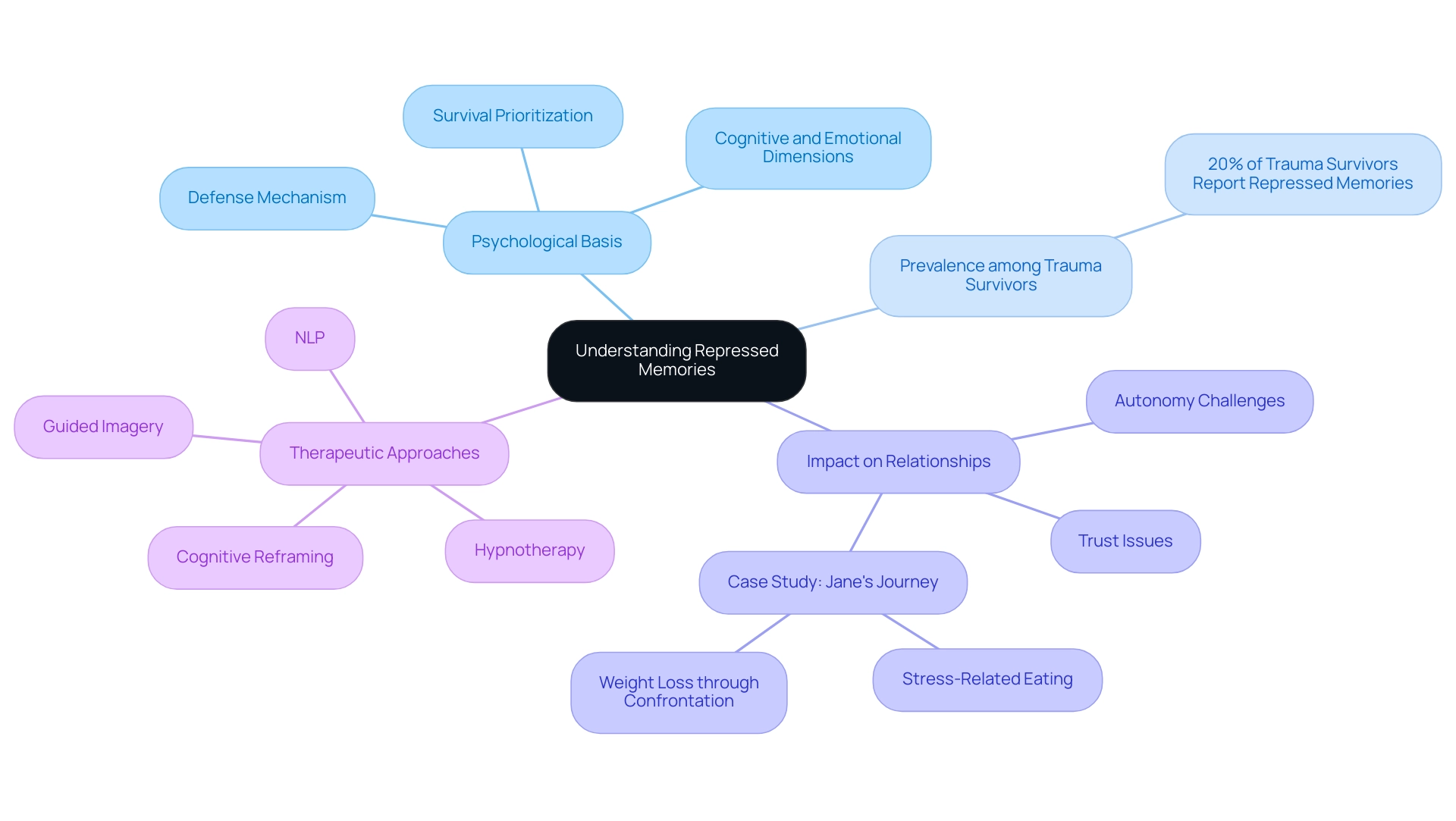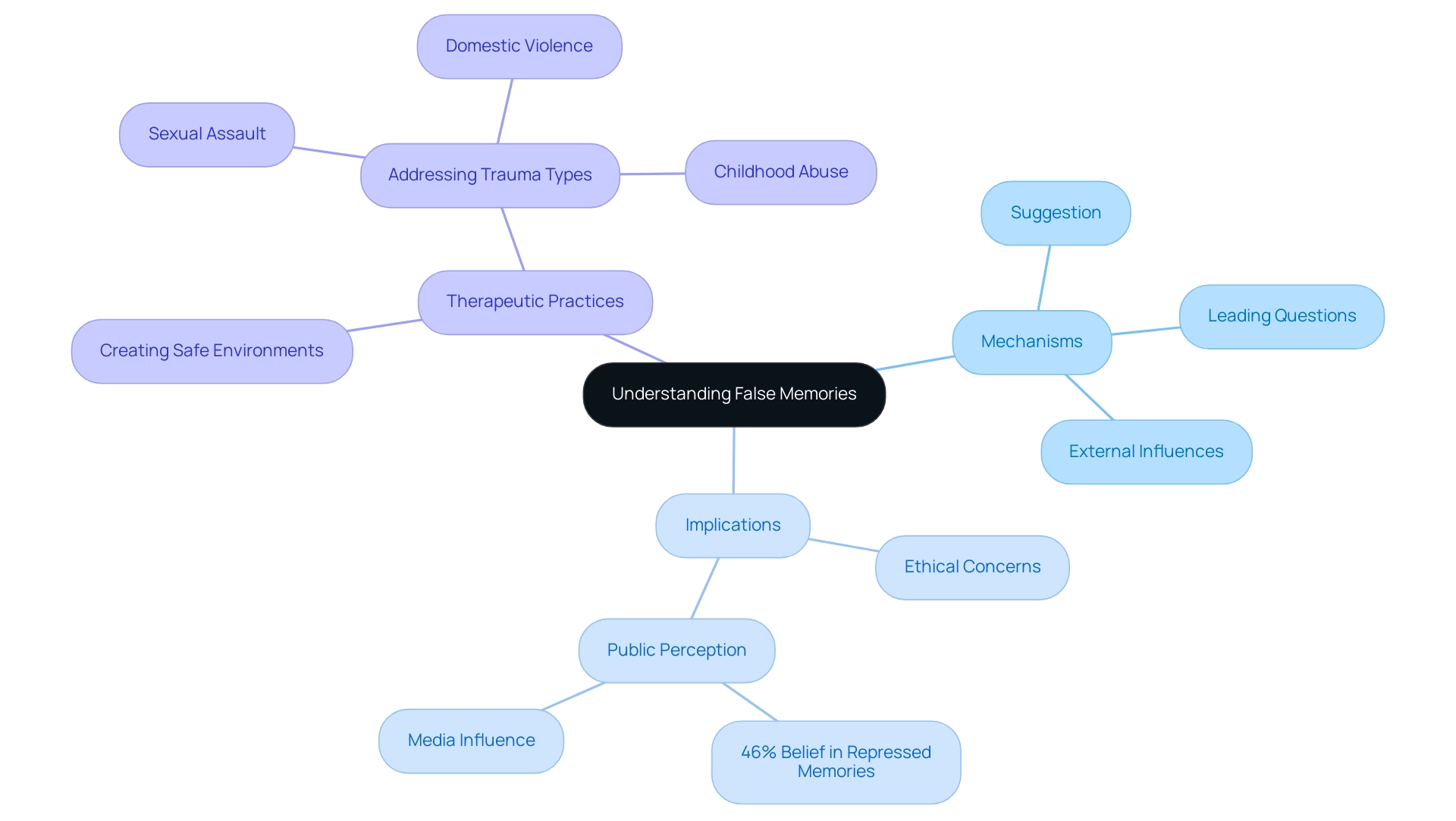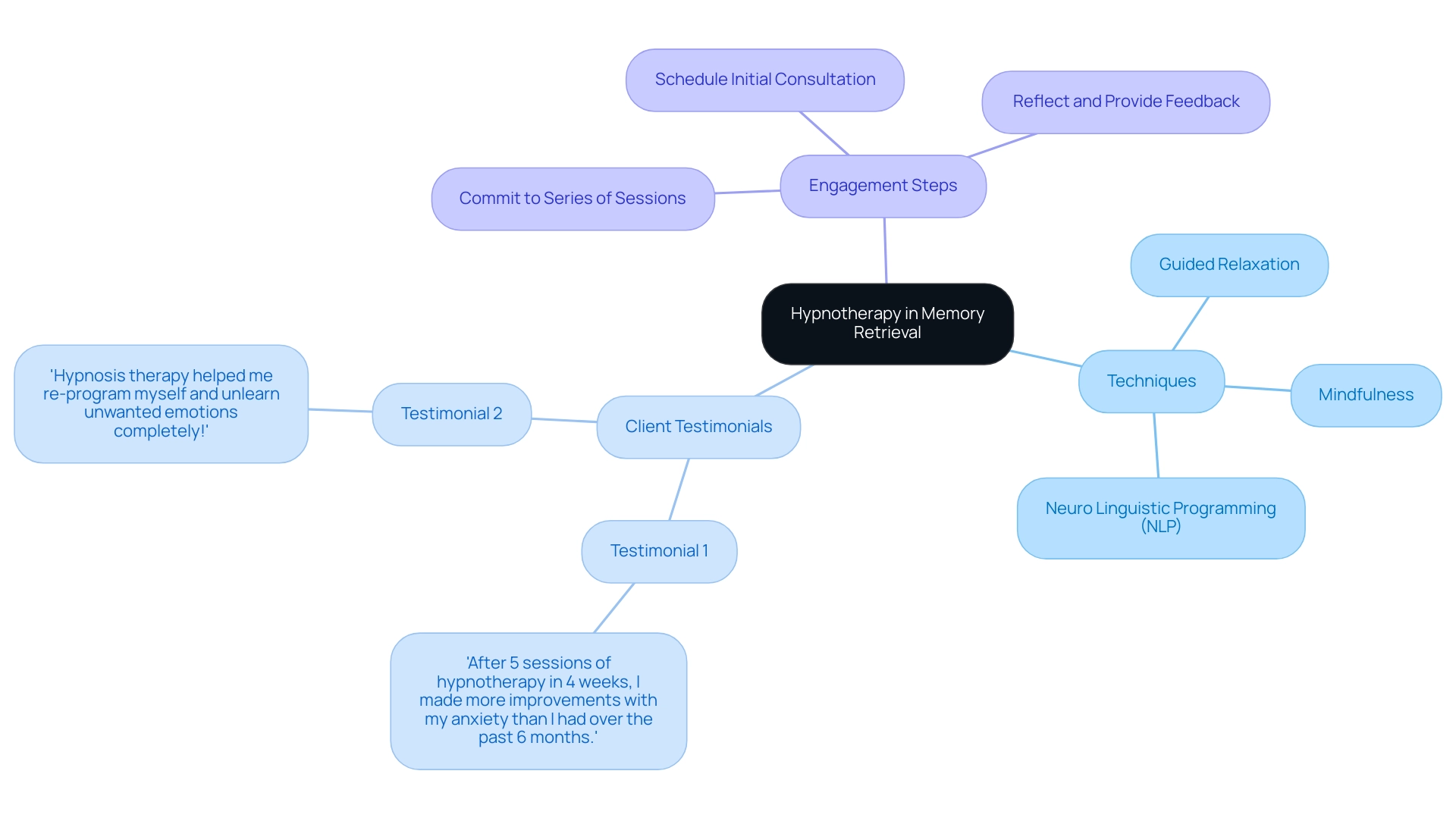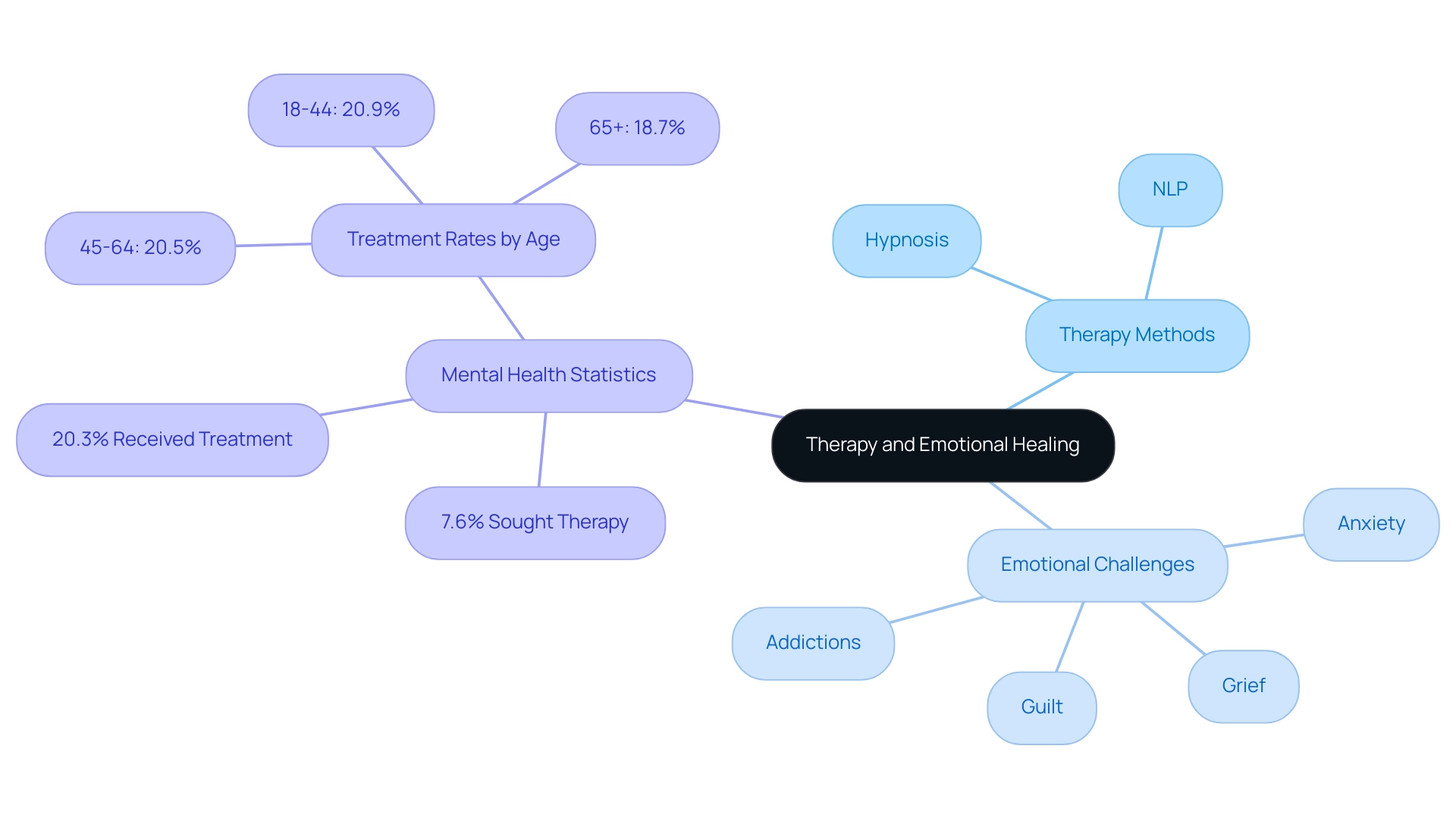PLEASE NOTE:
While the following article relates to your Google search, the services and methods at Goodwin Hypnosis may differ from those mentioned below. Since 2007, we have helped thousands of clients to overcome emotional and behavioral challenges when all else had failed. According to many of them (and their referring healthcare providers), our methods are faster than talk therapy, easier than willpower, and safer than medication. If you’re ready to resolve your issues, skip the article and visit the rest of our website, where you can learn about our unique approach, watch client testimonial videos, and discover how working with us one-on-one could be the solution you’ve been searching for.
We can help you with a variety of issues relating to emotional trauma. While we don't diagnose disorders like PTSD, we have helped hundreds of clients to overcome a wide range of traumatic experiences and their negative effects with methods that are more efficient and comfortable than CBT or EMDR. If you would like to learn more about working with us one-on-one to clear your trauma, click here.
Introduction
In the intricate landscape of trauma and memory, the mind often acts as a guardian, shielding individuals from overwhelming pain through mechanisms like repression. This protective instinct can lead to a complex interplay between forgotten experiences and the quest for healing. With approximately 20% of trauma survivors grappling with repressed memories, understanding this phenomenon becomes essential for effective resolution.
As individuals navigate the shadows of their past, the journey toward reclaiming their narratives is not just about confronting buried emotions; it’s also about fostering resilience and growth. By exploring techniques such as hypnosis and NLP, individuals can unlock the doors to their subconscious, paving the way for profound transformation and emotional healing. This exploration offers hope and insight, guiding survivors toward a future where they can embrace their stories with clarity and strength.
Understanding Repressed Memories: The Psychological Basis
Repressed recollections often encompass painful experiences that have been unconsciously blocked from our awareness as a protective measure. This defense mechanism serves to shield individuals from psychological distress that can feel too overwhelming to confront. The mind's remarkable ability to prioritize survival plays a crucial role here; it suppresses recollections that might disrupt daily functioning. Importantly, this complex psychological process encompasses both cognitive and emotional dimensions. For many, the journey of understanding this mechanism is vital for effective trauma resolution.
Recent studies from 2024 indicate that approximately 20% of trauma survivors report experiencing repressed recollections, highlighting the prevalence of this phenomenon. Research also reveals that the narratives adults construct about their childhood significantly influence their parenting styles, often reflecting unresolved traumas. As Alice Miller poignantly states, "The art of not experiencing feelings. A child can experience her feelings only when there is somebody there who accepts her fully, understands her, and supports her." When such support is absent, children may repress emotions to protect their fragile sense of self.
Furthermore, individuals who grew up in abusive environments frequently grapple with issues such as trust, autonomy, and stable relationships in adulthood. The case study titled 'Challenges of Adult Survivors of Childhood Abuse' illustrates how these survivors often struggle with dependency and control in their relationships, underscoring the lasting impact of these experiences. For instance, Jane's path from stress-related eating to weight loss through reshaping her traumatic experiences illustrates the significant impact of confronting suppressed feelings. In her sessions, techniques such as guided imagery and cognitive reframing were utilized to help her confront and reinterpret her past experiences, allowing her to break free from the cycle of eating.
The difficulties encountered by survivors of childhood abuse emphasize the need for empathetic therapeutic approaches that can softly assist people in addressing and processing these concealed experiences. Engaging with these repressed emotions is not merely a therapeutic goal; it is a crucial step toward healing and reclaiming one's narrative. Testimonials from individuals who have utilized hypnotism reveal its transformative impact, not only on managing grief and anxiety but also in addressing the root causes of distress, paving the way for a healthier, more fulfilling life. By employing specific techniques such as NLP and memory reconsolidation, Goodwin Hypnosis offers a pathway to reprogramming emotional responses, ultimately leading to lasting change and recovery.

The Controversy of False Memories: Mechanisms and Implications
The phenomenon of false recollections can be perplexing, often involving the recall of events that never occurred or remembering events inaccurately. This distortion frequently arises through mechanisms such as suggestion, leading questions, or external influences.
In therapeutic environments, particularly those employing methods such as hypnosis or guided imagery, there is a genuine risk of inadvertently fostering false recollections, raising ethical concerns about the authenticity of recovered experiences. Significantly, 46% of individuals believe in repressed recollections, which emphasizes the prevalence of false recollections in public perception.
As pointed out by Dr. McNally, victims of abuse understandably often wish to avoid reflecting on their traumatic experiences, yet they frequently find themselves unable to do so because of flashbacks and intrusive thoughts. The recent controversies surrounding false recollection syndrome underscore the ongoing debate among experts regarding the reliability of recovered recollections.
For instance, the case study titled 'Skeptical Perspectives on Dissociative Amnesia' illustrates this debate, suggesting that arguments against repressed recollections could similarly apply to dissociative amnesia, challenging its validity as a separate phenomenon.
Recognizing the mechanisms behind false memories is crucial for therapists, as it allows them to navigate these sensitive situations effectively. Therapists such as Dr. Mitchell strive to create a safe and nurturing atmosphere for individuals to explore their past without the fear of distorting their genuine experiences. This commitment not only enhances the healing process but also fosters trust, facilitating a more authentic therapeutic journey.

The Role of Hypnotherapy in Memory Retrieval
Hypnotherapy is a compassionate therapeutic technique that harnesses guided relaxation and focused attention, allowing individuals to access their subconscious mind safely. This approach is especially valuable in the context of recollection retrieval, as it can aid in the uncovering of repressed experiences within a secure and controlled environment.
For example, Dr. Mitchell employs hypnotherapy to assist clients in processing their trauma, allowing them to face distressing recollections while ensuring emotional safety throughout the journey. As Dr. Jane Smith, a clinical psychologist focusing on trauma, asserts, 'Hypnotherapy can be a powerful tool for individuals looking to access their recollections and heal past traumas.'
Significantly, 46% of laypersons express a strong belief in repressed experiences, highlighting the relevance of this therapeutic avenue. Studies, such as those conducted by Brewin et al. (2019), suggest that belief in both conscious and unconscious repression remains widespread, complicating the conversation around memory retrieval.
Recent developments in hypnosis practices at Goodwin Hypnosis, including the integration of mindfulness techniques and Neuro Linguistic Programming (NLP), have shown promise in enhancing its effectiveness for trauma recovery. When combined with NLP, hypnosis not only assists people in confronting their anxiety but also empowers them to break free from negative patterns and foster positive life changes.
Client testimonials reflect profound emotional healing, with many individuals expressing gratitude for the lasting peace of mind achieved through these holistic approaches. For example, one individual shared, 'After 5 sessions of hypnotherapy in 4 weeks, I made more improvements with my anxiety than I had over the past 6 months.' Another stated, 'Hypnosis therapy helped me re-program myself and unlearn unwanted emotions completely!'
To engage effectively with hypnotherapy and NLP, individuals are encouraged to:
1. Schedule an initial consultation to discuss their specific needs and goals.
2. Commit to a series of sessions to allow for gradual progress and deeper healing.
3. Reflect on their experiences and provide feedback to their practitioner to tailor the approach further.
As practitioners navigate this sensitive area, it is essential to approach hypnotherapy with care, ensuring that individuals feel supported and understood throughout the healing process.

Implications for Therapy and Emotional Healing
A profound comprehension of repressed and misleading recollections is vital for effective therapy and emotional healing, especially through innovative methods like hypnosis and NLP. Practitioners bear the responsibility of navigating these delicate intricacies with compassion, ensuring individuals feel safe and supported while exploring their memories.
Todd Goodwin and Gina Goodwin, board certified hypnotists and master practitioners of NLP, specialize in using these methods to help individuals reclaim control over their narratives and foster resilience in their healing journey. Their approach addresses specific emotional challenges such as:
- Anxiety
- Addictions
- Grief
- Guilt
Providing targeted interventions for individuals. According to the 2020 National Health Interview Survey, only 7.6% of adults residing in nonmetropolitan areas sought counseling or therapy, highlighting the need for accessible mental health care that addresses these critical issues.
Emotional complexities in recollection work can manifest, as Newman states, 'we may feel sad, upset, guilty, or anxious immediately after time spent writing.' Therefore, it’s crucial for therapists to create an environment where individuals can confront their past traumas without the fear of false recollections.
The 2020 report on overall mental health treatment statistics revealed that 20.3% of U.S. adults received mental health treatment, suggesting significant gaps that must be addressed through targeted interventions. Ethical practices, such as those employed by Todd and Gina, serve as powerful tools in this journey.
As clients delve into their emotional experiences, including techniques like memory reconsolidation, they can find a deeper understanding of themselves, paving the way for profound healing and growth. This process is not just about addressing the past; it’s about empowering individuals to move forward with clarity and strength.

Conclusion
The exploration of repressed memories and their impact on trauma recovery reveals a complex yet vital aspect of emotional healing. By understanding the psychological mechanisms behind repression, individuals can begin to navigate their experiences with greater clarity. The prevalence of repressed memories among trauma survivors highlights the importance of compassionate therapeutic interventions, such as hypnosis and NLP, which can facilitate the retrieval of these hidden narratives in a safe and supportive environment.
As the article illustrates, the journey toward healing is not just about confronting painful memories; it's also about fostering resilience and reclaiming personal narratives. Techniques like guided imagery and cognitive reframing empower individuals to reinterpret their past, breaking free from cycles of distress and allowing for growth and transformation. The testimonials shared by clients underscore the profound impact of these methods, demonstrating that healing is indeed possible through dedicated therapeutic work.
Ultimately, addressing repressed memories and understanding the implications of false memories is essential for effective therapy. It is crucial for therapists to create a nurturing space where clients feel safe to explore their emotions. By employing ethical practices and innovative techniques, individuals can embark on a journey of self-discovery and healing, paving the way for a future filled with hope and renewed strength.
Embracing this process offers not only the chance to confront the past but also the opportunity to move forward with a clearer sense of self and purpose.




